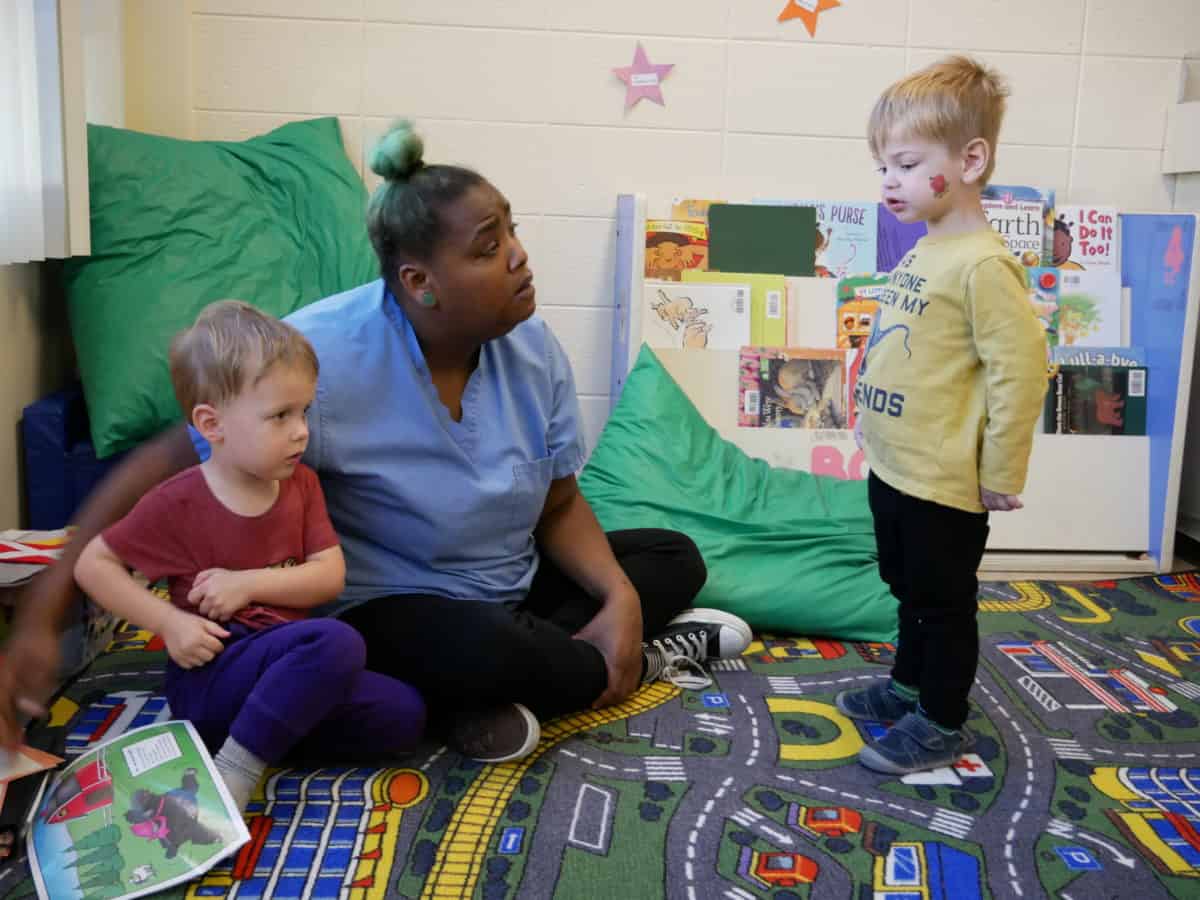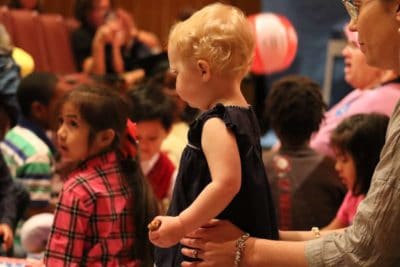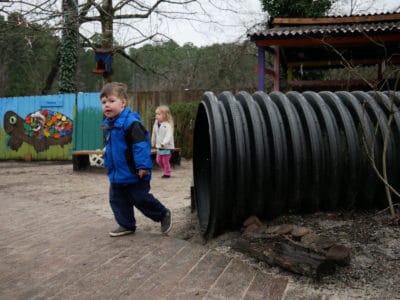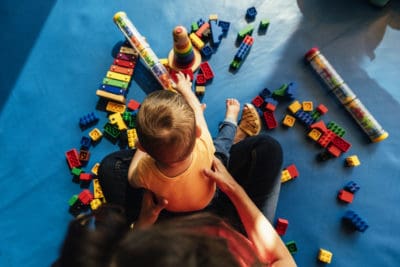
While there’s a lot that is weighing heavily on all of our minds with COVID-19, I wanted to take a moment as the Week of the Young Child comes to an end to share how learning from the early childhood community has impacted me professionally and personally during my time as North Carolina’s only early childhood beat reporter.
“You must have a good aura about you.”
I was sitting on a small bench beside Shari Johnson, a Durham early childhood teacher, in the hallway outside her classroom while her 2-year-old students napped inside.
Johnson said her students never behaved so well when an outsider was in the classroom. I had showed up that morning during “circle time,” around 9:30 a.m., observing, taking pictures, smiling at toddlers, and asking Johnson and her teaching partner questions whenever they had small moments to chat.
Nap time, which also served as Johnson’s lunch time, was her biggest break in the day, so we headed to the hallway to talk about her journey. While going to school and working minimum-wage jobs to support herself — eventually finding her passion for early education — Johnson would always take care of the children of her family and friends.
“Children know when something’s wrong,” Johnson told me. She looked at the baby boy in her lap, who she was holding for another teacher. “Even he knows.” As we talked, I was inspired by her passion, her emotional intelligence, and her skill. She communicated with the baby clearly, making him giggle and calming him when his teacher walked by.
I am not a parent. Unlike Johnson, I didn’t grow up around young children. I never babysat or had younger siblings. As I get older, I’m still figuring out if I’ll have children of my own.
I am, however, the only reporter in the state solely focused on early childhood education and development. Over the past year of covering early learning for EdNC, I’ve learned about the important work of early educators and the ways they struggle to do what they love, about the access, equity, and financing issues that affect young children across the state, and about how the systems that support young children need more investment and alignment.
But it’s moments like the one in the hallway with Johnson that have the most lasting impact on me and that build my personal motivation to tell stories and lift up voices for young children. I realized that day that I can connect to our youngest learners — not just by way of my reporting. I realized that emotions — something anyone who knows me knows I don’t shut up about — are the first language we develop. As an extreme empath, a feeler, I was touched and fascinated. We reporters are, indeed, humans first.
Johnson told me about how identifying and expressing emotions are skills she works to build in all of her students starting at infancy. And I watched throughout the day as she used such patience and care to address each child’s every feeling and concern. It reminded me of a speaker I heard in Feb. 2019, on a panel at the state’s event launching the North Carolina Early Childhood Action Plan. Social and emotional development was a topic of much discussion, as it continues to be in the state’s evolving conversation about investing in the early years.
Betty Rintoul, executive director of Encouraging Connections, spoke about how the wiring of children’s brains depends on the emotional nurturing they receive. Rintoul shared what I’ve heard echoed in conversations with experts, educators, and parents alike: how traumatic experiences in early years profoundly shape how one responds to the world for life.
“We go around acting like we’re thinking beings who happen to feel, but the brain says ‘no, we are feeling beings who happen to think,'” Rintoul said.
On the bench in Durham, Johnson teared up. She was talking about how lucky she was to be in her position. But the emotional toll — one that experts are trying to equip early educators to cope with — was clear in Johnson. Her vulnerability struck me.
This is what I have personally treasured most from this work, what feeds my soul, and why I thank you for following along: glimpses of honesty, of raw emotion, of giving love to the most vulnerable among us, even in the midst of tears.
As the state learns the importance of investing in early care and education, it is catching up to what early educators like Johnson practice every day. At the core of a strong foundation, as cliché as it may sound, is love.
If you’ve made it this far, I have a quick ask of you. Please subscribe to my newsletter, Early Bird, which I send out every other Sunday. I tell the stories of early childhood education in this state I call home. Join me. Sign up below.



